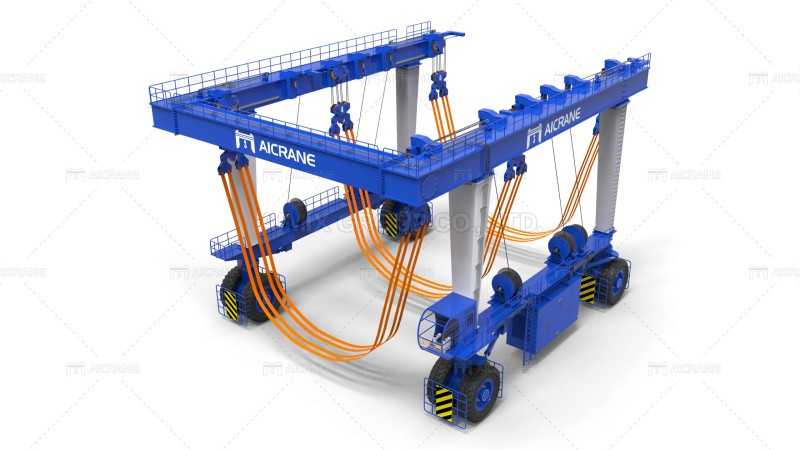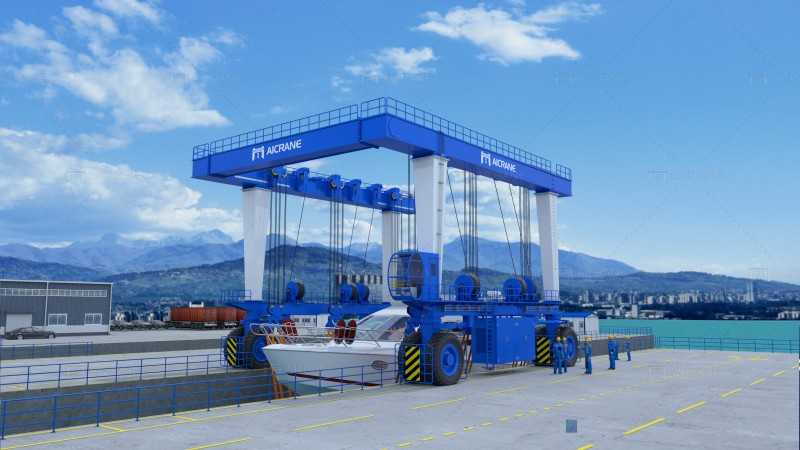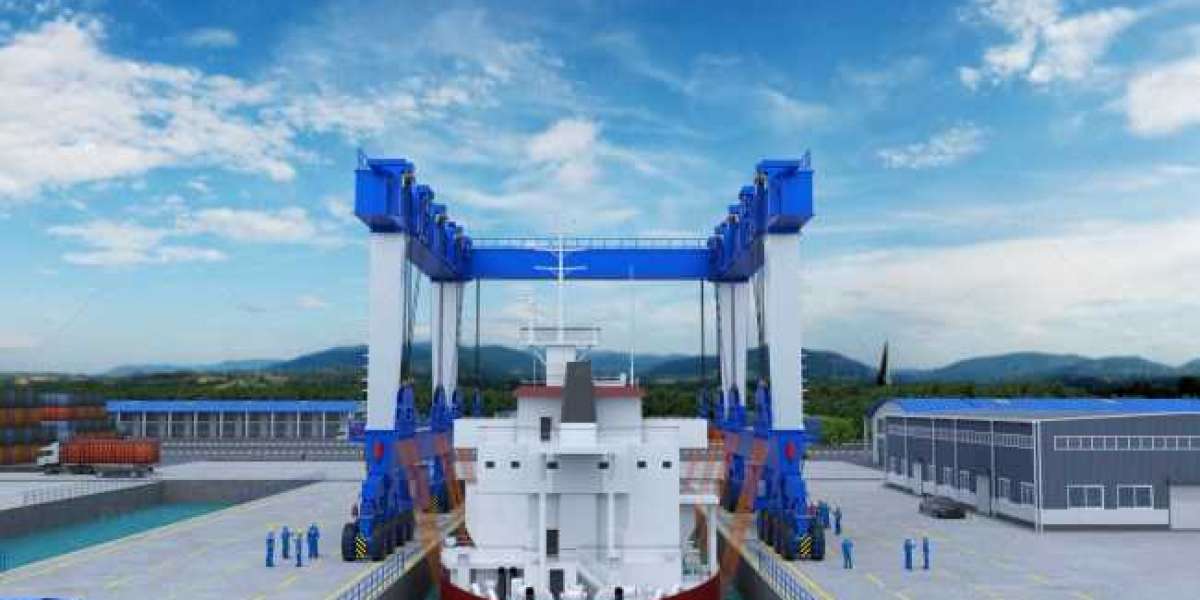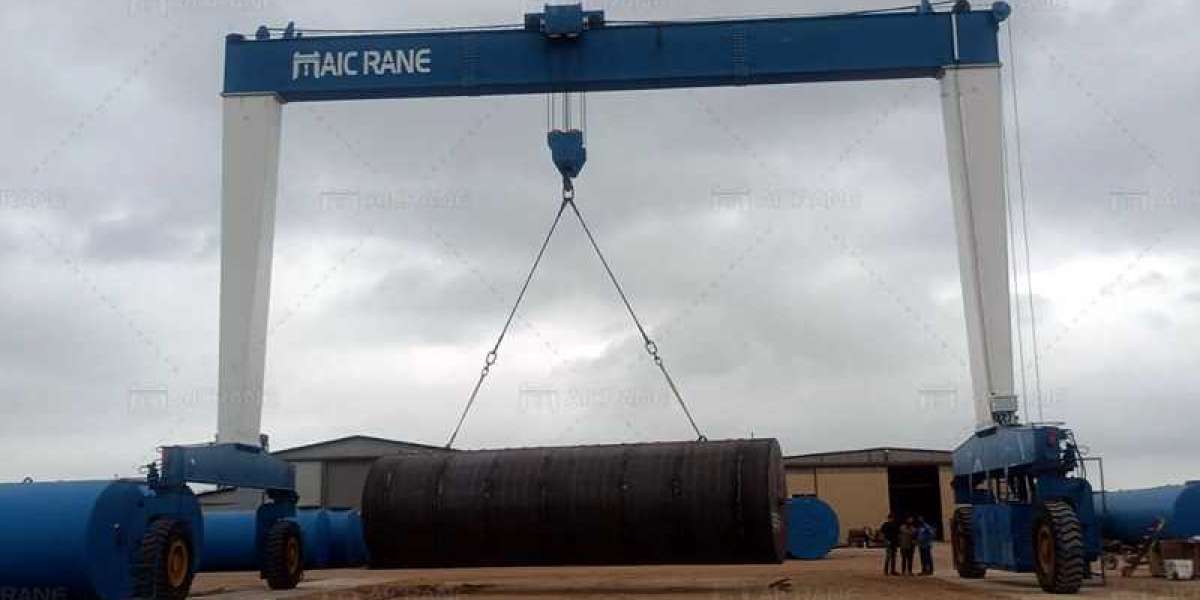Mobile boat hoists have become essential equipment for marinas and shipyards, providing efficient, flexible, and safe lifting solutions for boats of all sizes. As the marine industry continues to evolve, the demand for more advanced and capable boat hoisting technologies has grown. Recent innovations in mobile boat hoists are transforming how marinas and shipyards handle vessels, improving both operational efficiency and safety. This article explores the top innovations in mobile boat hoists and how they are reshaping marina and shipyard operations.

Increased Load Capacities and Customization Options
One of the most significant innovations in mobile boat hoists is the increased load capacity. Modern hoists can now lift boats weighing over 1,000 tons, making it possible to handle larger vessels that were previously beyond the reach of traditional hoisting equipment. This increase in capacity is especially beneficial for shipyards that service larger commercial and recreational vessels, allowing them to expand their operations.
In addition to greater lifting capacities, manufacturers are offering more customization options to meet specific operational needs. Shipyards can now order mobile boat hoists tailored to their unique requirements, such as the width of the lifting area, the height of the hoist, and even the type of tires used for maneuvering across different terrains. Customization ensures that the hoist fits seamlessly into the marina’s infrastructure, maximizing efficiency while minimizing the risk of damage to vessels or equipment.
Automated Control Systems and Precision Handling
The integration of automated control systems into mobile boat hoists is another game-changer for the industry. These systems enable operators to control the hoist’s movement with greater precision, allowing for smoother lifting and lowering of boats. Many hoists are now equipped with wireless remote controls, providing operators with the flexibility to move freely around the vessel and maintain a clear line of sight during operations.
Some advanced systems feature GPS and load monitoring capabilities, which can help operators navigate tight spaces and track the weight of the boat in real-time. This level of precision handling reduces the risk of accidents, such as collisions with dock structures or uneven lifting that could damage the vessel’s hull. Automation also improves operational efficiency by speeding up the lifting process and allowing for repeatable, consistent operations.
Improved Safety Features
Safety is a top priority in marina and shipyard operations, and mobile boat hoists have seen significant advancements in safety features in recent years. Modern hoists are now equipped with anti-sway technology, which stabilizes the boat during lifting and movement. This technology is crucial in preventing damage to vessels, especially in windy or adverse weather conditions when the boat might otherwise swing unpredictably.
Another innovative safety feature is load-sensing technology, which automatically adjusts the lifting power based on the boat’s weight. This prevents overloading the hoist, reducing the risk of mechanical failure or accidents. Additionally, many mobile boat hoists now include emergency stop systems, backup power supplies, and overload alarms to ensure safe operations in case of equipment malfunction. Know more about marine boat travel lift, just check this page for details https://aicranemachine.com/marine-travel-lift/.

Sustainability and Energy Efficiency
As environmental concerns take center stage, manufacturers of mobile boat hoists are focusing on making their equipment more energy-efficient and environmentally friendly. Electric-powered mobile boat hoists are becoming increasingly popular as they produce fewer emissions compared to diesel-powered models. These electric hoists not only reduce the carbon footprint of marina and shipyard operations but also lower operational costs by using less fuel and requiring less maintenance.
In addition to electric-powered models, hybrid hoists that combine electric and diesel power are also gaining traction. These hybrid systems offer the best of both worlds, allowing operators to switch between power sources depending on the specific operational requirements. For example, diesel power may be used for long-distance movements, while electric power can be utilized for more precise maneuvers in tighter spaces.
Another eco-friendly innovation is the use of regenerative braking systems, which capture energy generated during braking and reuse it to power other functions of the hoist. This technology not only reduces energy consumption but also extends the lifespan of the hoist’s braking components.
Enhanced Maneuverability and Compact Designs
The demand for mobile boat hoists that can navigate confined spaces within marinas and shipyards has led to the development of more compact and maneuverable designs. Modern hoists are now equipped with all-wheel steering and hydraulic axle systems, allowing for tighter turning radii and smoother navigation over uneven surfaces. This improved maneuverability is especially valuable in crowded shipyards, where space is limited, and precise movement is required to avoid obstacles.
Additionally, many mobile boat hoists now feature modular designs, which allow them to be easily disassembled and transported to different locations. This is particularly beneficial for marinas or shipyards with seasonal operations or those that service multiple sites. The modular nature of these hoists ensures they can be quickly set up and used in various environments, providing maximum flexibility.
IoT and Data Analytics Integration
The integration of Internet of Things (IoT) technology into mobile boat hoists is transforming how operators monitor and maintain their equipment. IoT-enabled hoists are equipped with sensors that track various operational metrics, such as load weight, tire pressure, engine temperature, and fuel consumption. This real-time data is transmitted to cloud-based platforms, where it can be analyzed to identify potential issues before they lead to equipment failure.
Predictive maintenance powered by data analytics is one of the key benefits of IoT integration. By analyzing historical data and operational trends, operators can schedule maintenance at optimal intervals, reducing the risk of unexpected breakdowns and minimizing downtime. This not only extends the lifespan of the mobile boat hoist but also saves on costly repairs and ensures smoother, uninterrupted operations.
Remote Monitoring and Operation
Remote monitoring and operation capabilities are becoming increasingly common in modern mobile boat hoists. With these advancements, operators can control the hoist and monitor its performance from a remote location, improving safety and convenience. For instance, in large shipyards or marinas with multiple docking areas, operators can oversee the movement of boats without needing to be physically present in the immediate vicinity of the hoist.
Remote monitoring systems also provide real-time updates on the hoist’s operational status, allowing managers to track usage patterns, detect inefficiencies, and make informed decisions about scheduling maintenance or repairs. This remote capability is especially beneficial for marinas that operate across large areas or have multiple lifting points.
Conclusion
The mobile boat hoist industry is experiencing a wave of innovation, driven by the need for greater efficiency, safety, and sustainability in marina and shipyard operations. From automation and load-sensing technology to energy-efficient power sources and IoT integration, these advancements are helping businesses streamline their operations while reducing costs and environmental impact. As the marine industry continues to evolve, mobile boat hoists will play an increasingly important role in ensuring that marinas and shipyards can meet the demands of modern boat handling with precision, flexibility, and safety.






